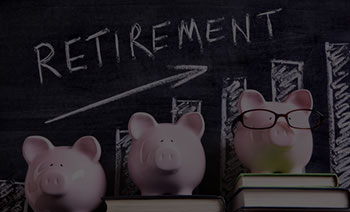
I’m in my 30’s. Where Should I be With My Finances?
Daniel HardimanI’m in my 30’s. Where Should I be With My Finances?
It’s likely that you will experience some exciting life changes in your 30s such as advancing in your career, getting married, having kids, purchasing your own home etc. As many aspects of your life evolve so should some of your financial habits and here are some tips on the key areas to focus on.
1: Get Rid of Bad Debt:
The highest rate of interest you will pay is on short term debt and credit cards and is a major drain on cash flow. Interest rates on short term loans including car loans can be in the region of 8% – 12% and the rate of interest on credit cards can be up to 20%. The first step in any financial plan should be to work on clearing this debt and when you have cash flow will improve and you will find it easier to save.
2: Build up An Emergency Fund:
Having an emergency fund will give you great piece of mind and enables you to deal with any unexpected expenditure. The recommended rainy day fund is 3 – 6 months’ salary and you should have this invested in a low risk easy access account. The purpose of this fund is to help you with cash flow during difficult times so you are not looking at making any major investment returns with this money.
3: Try and Own Your own Home:
A recent article in the Irish Independent states that in 80% of cases, the mortgage repayments for your own home is less than the cost of renting. This is certainly what we are experiencing when talking to first time buyers and why so many renters are looking to get on the property ladder. The main stumbling block to buying your own home is building up a deposit of 10% if the purchase price is less than €220,000 and getting a mortgage from your bank. If you have the discipline to save up for your deposit, it will improve the likelihood of getting approval for a mortgage by illustrating a good saving record. The government introduced a scheme where first time buyers will avoid DIRT of 41% on regular savings plans that are set up to fund a deposit on your first house. KBC Bank Ireland have the best regular savings plan in the market with a 3.5% AER variable rate.
4: Seriously Consider Saving for retirement
Why start a pension in your 30s? Two simple reasons:
A: The Power of Compounding
The longer your money is invested, the longer the period of time it’s earning a return and hence growing the value of your pension. By starting your pension early, it will protect you from having to save big amounts into your pension as you get closer to retirement age.
B: One of the last Tax relief Schemes Available:
You can get up to 40% income tax relief on your pension contributions and all investment growth is tax free up until you reach retirement age. Consider how much tax you can save over a long period of time and having these tax savings in your pension for later in life.
5: Get Adequately Insured
The more you have to lose the more important having adequate insurance becomes. You need life insurance the most when you have small children to fund the costs associated with bringing up your children in the event of an unfortunate death. You should avoid open ended whole of life insurance policies and go with a term insurance policy that has a convertible option for later in life in case you need to extend the term. Life insurance premiums start from €10 per month so for a relatively small cost, you will be protecting your family’s future. If you are single the priority for you should be income protection to cover loss of income when out of work due to an illness or injury. Income protection plans can be very reasonable if taken out in your early 30s and will be significantly lower than someone in their 40s.
6: Establish a College Savings Plan for Your Children
We are seeing a large number of parents saving their children’s allowance on a monthly basis. This will make a major difference to cash flow when your children enter third level because it will be extremely difficult to fund the cost of college education out of your earnings. It appears the majority of people are saving these funds in a deposit account where their funds are capital guaranteed but the returns can be low. As this is a long term savings plan, young parents should consider saving into a diversified multi-asset investment fund where they have the potential for higher returns over the long term.
7: Draw up a Will:
In the current times that we live in, we see an increase in partners having children before they’re married and indeed partners not wanting to marry. These are the people who have the most to lose by not having a will as the deceased assets will not automatically go towards their loved ones and this can have catastrophic consequences. Drawing up a will for a small cost can eliminate financial headaches for your intended beneficiaries.
Summary
A lot of the above financial tips involve saving a portion of your income and the tip I would give to achieving your saving goals is to make it automatic and to start early. I’m not a fan of doing monthly household budgets as I can never tend to stick to them. I decide that I will try and save x amount every month and see if I can maintain my standard of living and pay all of bills at the same time. By making these savings automatic, you are much more likely to achieve your savings goals than saving funds on an ad hoc basis as your current account balance improves




ADD A COMMENT
You must be logged in to post a comment.